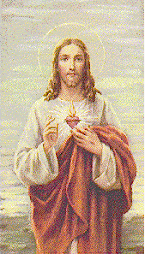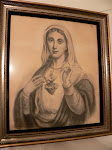
The Following is excerpt 3:
Who in the Church Should Participate in Political Life?
14. Unfortunately, politics in our country often can be a contest of powerful interests, partisan attacks, sound bites, and media hype. The Church calls for a different kind of political engagement: one shaped by the moral convictions of well-formed consciences and focused on the dignity of every human being, the pursuit of the common good, and the protection of the weak and the vulnerable. The Catholic call to faithful citizenship affirms the importance of political participation and insists that public service is a worthy vocation. As Catholics, we should be guided more by our moral convictions than by our attachment to a political party or interest group. When necessary, our participation should help transform the party to which we belong; we should not let the party transform us in such a way that we neglect or deny fundamental moral truths. We are called to bring together our principles and our political choices, our values and our votes, to help build a better world.
15. Clergy and lay people have complementary roles in public life. We bishops have the primary responsibility to hand on the Church’s moral and social teaching. Together with priests and deacons, assisted by religious and lay leaders of the Church, we are to teach fundamental moral principles that help Catholics form their consciences correctly, to provide guidance on the moral dimensions of public decisions, and to encourage the faithful to carry out their responsibilities in political life. In fulfilling these responsibilities, the Church’s leaders are to avoid endorsing or opposing candidates or telling people how to vote. As Pope Benedict XVI stated in Deus Caritas Est, The Church wishes to help form consciences in political life and to stimulate greater insight into the authentic requirements of justice as well as greater readiness to act accordingly, even when this might involve conflict with situations of personal interest. . . . The Church cannot and must not take upon herself the political battle to bring about the most just society possible. She cannot and must not replace the State. Yet at the same time she cannot and must not remain on the sidelines in the fight for justice. (no. 28)
16. As the Holy Father also taught in Deus Caritas Est, “The direct duty to work for a just ordering of society is proper to the lay faithful” (no. 29). This duty is more critical than ever in today’s political environment, where Catholics may feel politically disenfranchised, sensing that no party and too few candidates fully share the Church’s comprehensive commitment to the life and dignity of every human being from conception to natural death. Yet this is not a time for retreat or discouragement; rather, it is a time for renewed engagement. Forming their consciences in accord with Catholic teaching, Catholic lay women and men canbecome actively involved: running for office; working within political parties; communicating their concerns and positions to elected officials; and joining diocesan social mission or advocacy networks, state Catholic conference initiatives, community organizations, and other efforts to apply authentic moral teaching in the public square. Even those who cannot vote have the right to have their voicesheard on issues that affect their lives and the common good.




























No comments:
Post a Comment